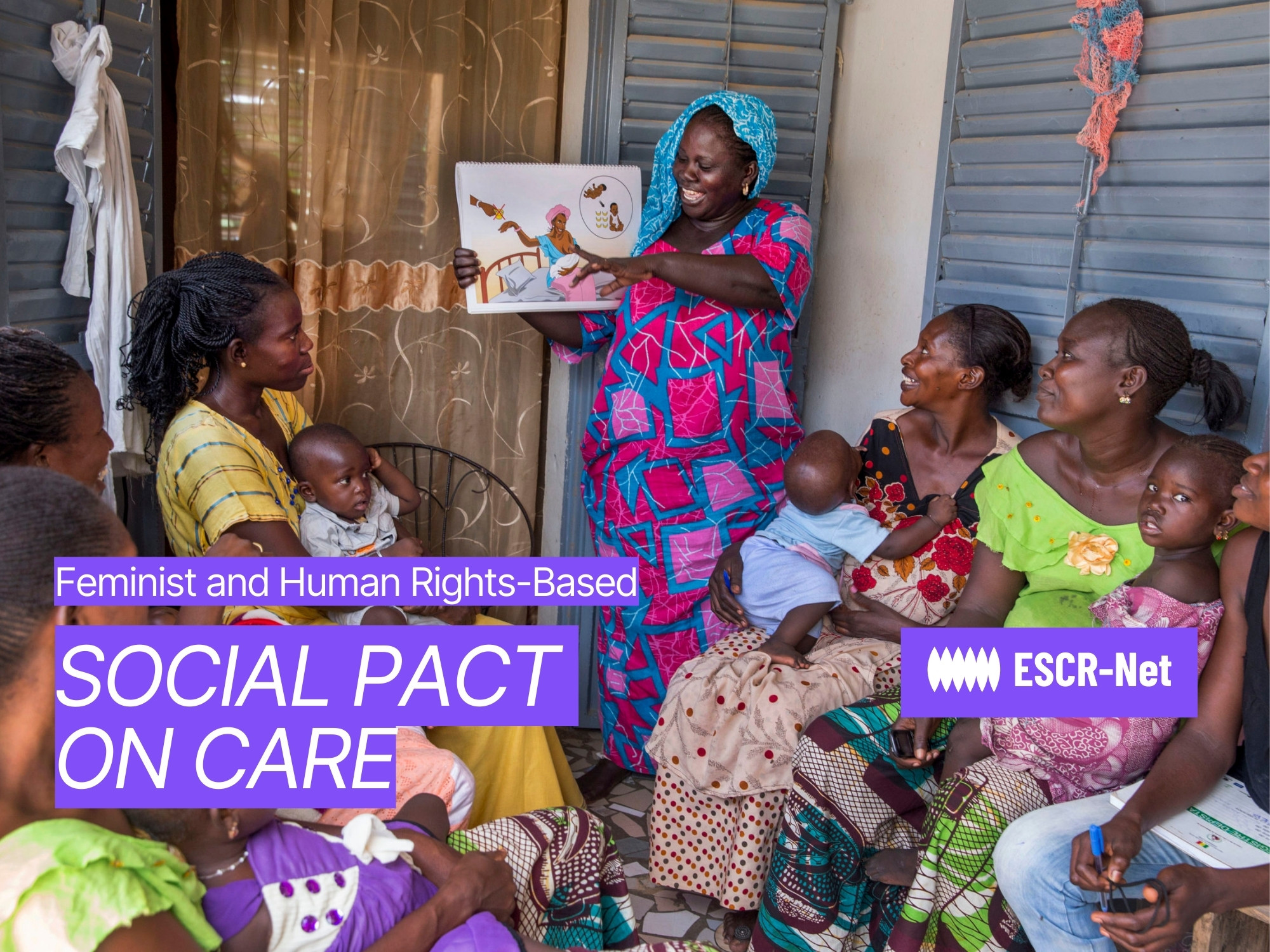A collective of ESCR-Net members and allied organizations filed a written submission in response to Argentina’s request for an advisory opinion on the right to care made to the Inter-American Court of Human Rights (IACtHR). The prospective advisory opinion represents a groundbreaking opportunity for an international human rights court to recognize the right to care, which implies the recognition of care work as the work that sustains life in all its facets and the proper functioning of society.
In the submission, network members urge the recognition of the right to care as an autonomous, justiciable and enforceable right that is interdependent and indivisible from other recognized human rights. The right to care is essential to upholding and guaranteeing multiple human rights because the right to equality, labor rights, and all the human rights that care work guarantees are built and strengthened on the basis of care and cannot be understood and fully realized without the proper guarantee of the right to care itself.
Confronting Invisibility and Commodification of Care
The brief covers different dimensions of care work, including unpaid and paid domestic work and environmental care work carried out by Indigenous People. It acknowledges the historically and disproportionate burden women bear as caretakers of children, older adults, and sick persons; in food production, emotional care, and as efficient stewards of the environment. Under current structures, care remains mostly unrecognized, invisibilized, and increasingly privatized and commodified as a source of profit for corporations, leaving women and girls vulnerable to labor exploitation. Within this context, members urge the Court to interpret the role of States as guarantors of care as a universal human right with three dimensions: to care within a framework of rights; to be cared for or receive quality care that is adjusted to the needs and stage of the life cycle; and to have time and enabling conditions for self-care and the enjoyment of leisure.
Informed by Feminist, Intersectional Approaches
Thus, members call for an advisory opinion on the right to care that is informed by a feminist, intersectional, substantive equality, and non-discrimination approach. The feminist approach in the context of care questions traditional gender roles that assign women the main responsibility for unpaid care work and promotes the valuation and equitable redistribution of care work and the recognition of its economic and social value. An intersectional approach is necessary to analyze how multiple and compounding forms of discrimination based on gender, ethnic origin, disability, poverty, migrant status, marital and family status, literacy, and other grounds position women and their experiences differently. A substantive equality approach requires States to acknowledge the actual impact of unfair distribution of care on women. For substantive equality to become a reality, intersecting forms of discrimination must be addressed. The realization of women’s substantive equality requires an understanding of the subordination, stereotyping, and structural disadvantages that women experience to effectively implement a non-discrimination approach.
Implementing the Six Rs Framework
The brief concludes by outlining State legal duties to adopt measures flowing from the right to care, driven by the Six Rs framework developed collectively among network member feminists, indigenous women, human rights defenders, and community and grassroots leaders from diverse regions. Members of the Care Committee and Steering Committee of ESCR-Net’s Women and ESCR Working Group and affirmed by members of the ESCR-Net Women and ESCR Working Group developed a statement sharing, “the framework of the 6Rs values and redistributes care work and ensures the representation and recognition of caregivers, the majority of them are women. It aims to promote feminist economics and advance policies that reduce the care burden, reframe the economy, and fulfill the rights of caregivers and recipients.” ESCR-Net introduced this framework earlier this year on International Workers’ Day, highlighting the COVID-19 pandemic’s role in clarifying the centrality of care and exposing deepening gaps in the distribution of care which exacerbates burdens placed on women and girls. The Network urges governments to advance transformative care policies that address the structural injustices underlying the undervaluation of paid and unpaid care work and to develop comprehensive care systems that redistribute time, unequal power relations, and resources.
In alignment with the framework pushed forth earlier this year, the standards presented in the submission provide critical frameworks and perspectives for the Court’s consideration of Argentina’s request for an advisory opinion on the right to care.
The submission brief was prepared by the Interamerican Association for Environmental Defense (AIDA), Asociación de Mujeres Meretrices de Argentina (AMMAR), Center for Legal and Social Studies (CELS), Coalición Internacional para el Hábitat, Fundeps, Global Initiative for Economic, Social and Cultural Rights (GI ESCR), Maru Meléndez Margarida, Simone de Beauvoir Leadership Institute (ILSB), Sindicatos de Obreros Curtidores de la República Argentina, Observatorio DESCA, Viviana Osorio Pérez, and Women’s Legal Centre (WLC) with the coordination of the ESCR-Net secretariat.




